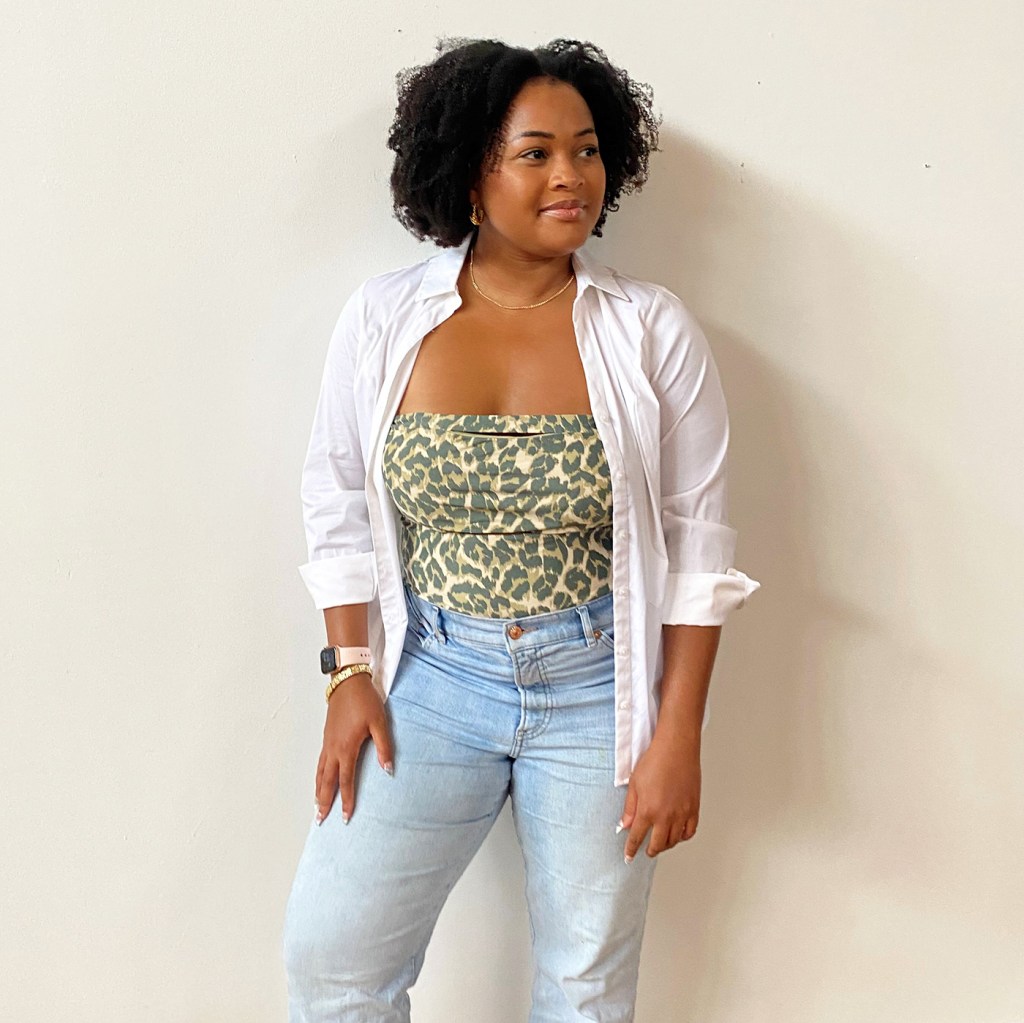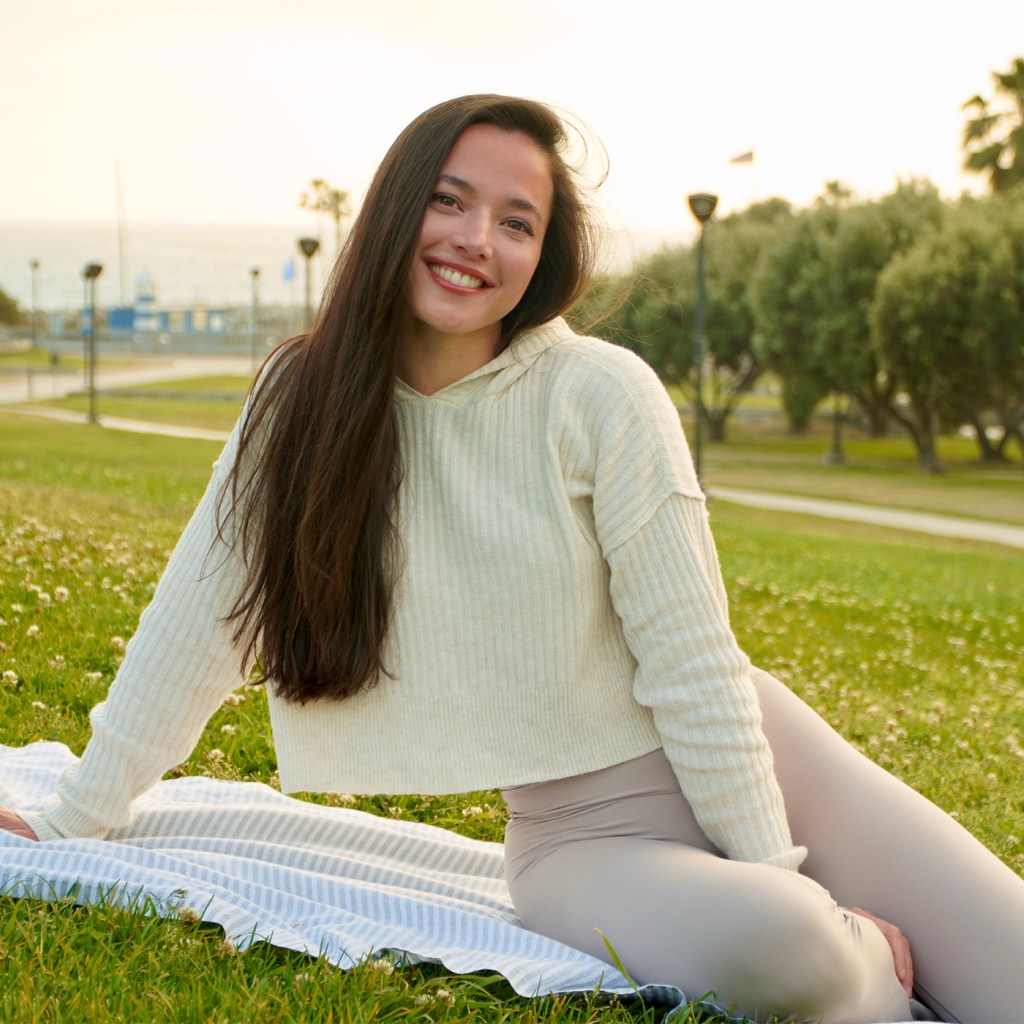We’re celebrating Earth Week and want you to join in on the fun, Aerie fam! After catching up with the Surfrider Foundation about how you can help in their mission of protecting the world’s ocean, waves, and beaches, for all people, we’re bringing you an interview with two of our sustainably focused #AerieREAL Changemakers!
We caught up with Maya Caine, founder of digital fashion platform MIVE, and Mei-Li Hey, founder of non-profit organization Atwero, to gain insight on how they infuse sustainability into their entrepreneurship efforts. The two inspiring women discuss how they choose the right companies to partner with, how they learned the tools to run their businesses and what it’s like being #AerieREAL Changemakers. Read on below to learn more about Maya and Mei-Li!
On sustainability:
Why is sustainability important within the fashion/retail industry and how has it shaped the brand mission at MIVE?
Maya Caine: On average, a garment is worn seven times before it is thrown away and 85% of all textiles end up in landfills, making the fashion industry one of the most wasteful industries in the world. The industry is responsible for an exorbitant amount of carbon emissions, wastewater and microplastics that are toxic to global communities and ecosystems. Western culture has created an unhealthy standard of overconsumption fueled by fast fashion. We took time to educate ourselves on the negative environmental impact and shape our business around slow fashion principles that serve our future world.
“We took time to educate ourselves on the negative environmental impact and shape our business around slow fashion principles that serve our future world.”
#aeriereal changemaker Maya Caine, founder of mive
How does Atwero’s brand mission align with environmental sustainability?
Mei-Li Hey: One of the issues that Atwero is addressing with our work towards improving global sanitation is open defecation, which over 1 billion people are forced to practice. Not only does this spread disease, but it has incredibly bad effects on the environment, as it contaminates the ecosystem. Learning about and implementing safe and sanitary disposal of waste is essential to environmental sustainability.
Our mission of building pit latrine assistive devices to improve global sanitation also sustainably sources all tools and materials locally. By doing this, we drastically reduce transportation emissions while also supporting the local communities.
On partnering with the right organizations:
What criteria do you look for when choosing small, sustainable brands to partner with?
Maya: We look for brands that make garments made-to-order and/or made-to-measure to cut down on fabric waste. We also look for brands that leverage recycled materials, deadstock fabric, organic cotton, and non-toxic dyes. All of our brand partners pay their team a living wage and employ fair labor practices.
How do you determine which organizations are best to partner with, that will uphold Atwero’s brand mission for sustainability and sanitation?
Mei-Li: We partner with organizations that can show they have a track record making ethical choices that align with our goals in the sustainability and sanitation sector.
On learning the tools of the trade:
What inspired you to convert MIVE into a sustainable brand and what tools did you use to get started?
Maya: After our team educated ourselves on the negative environmental impact and garment worker exploitation that is largely adopted within the fast fashion industry, we wanted to commit to a business model where what is best for people and what is best for the planet are in perfect harmony. Thanks to Elizabeth Cline, Dana Thomas, Slow Factory, Aja Barber, Remake and other slow fashion thought leaders and educational hubs, we were able to reflect, learn and execute on sustainable business practices.
What resources have helped you learn about sustainability and how to apply those learnings to build Atwero?
Mei-Li: Lots and lots of research! Both online sources, such as the World Health Organization and WaterAid, and during our in-field research trips to Uganda have helped our team learn about sustainability. There is a large research base that exists pertaining to engineering for sustainability from design to disposal, and I utilized those concepts into the designs of our pit latrine assistive devices.
One of the main themes within these learnings is how important education is to both sustainability and sanitation. There is a lot of great technology that can be used to improve both, but it must go hand in hand with education on how to use the technology and why it is so important, because mass participation is necessary. This is why Atwero’s mission extends beyond just the assistive device technology and into educating communities on how to improve sanitation, hygiene and sustainability.
On being an #AerieREAL Changemaker:
How has being an #AerieREAL Changemaker impacted the recent launch of MIVE and your growth strategy for the next five years?
Maya: Alongside our partnerships with emerging designers, we see value in partnering with large brands to facilitate sustainable practices across their operations. Being an #AerieREAL Changemaker helped our team explore ways to collaborate with large fashion brands, like Aerie, on ways to rescue and utilize fabric waste.
“It is so rewarding to see how much change can happen in a year, and a crazy year at that, with #AerieREAL support.”
#AERIEREAL Changemaker Mei-Li Hey, Founder of Atwero
What is the most rewarding part of being a 2020 #AerieREAL Changemaker?
Mei-Li: The most rewarding part of being a 2020 #AerieREAL Changemaker is to see how much positivity and tangible change came from the campaign. To know that I was some part of that is incredible. There have been libraries and dance schools opened, businesses started, and people now with assistive technology that they otherwise would not have had access to because of the Aerie Changemakers campaign. It is so rewarding to see how much change can happen in a year, and a crazy year at that, with #AerieREAL support.
On advice for others:
What would be your advice for other aspiring entrepreneurs who want to fuse fashion and sustainability?
Maya: I would highly recommend joining slow fashion communities and education platforms such as Remake and the Slow Factory. There are thousands of artisans, scientists and entrepreneurs who have created innovative ways to sustainably produce and sell garments, and the network provides amazing resources and support.
How would you recommend others who want to incorporate more sustainable initiatives get started?
Mei-Li: The first step to incorporating more sustainable initiatives is to investigate each step of your supply chain and make sure you understand the background of the materials that you rely on. I think the key is asking questions about sustainability and putting in the effort to commit to doing better whenever it’s possible.
What do you think of Maya and Mei-Li’s sustainable missions, Aerie fam? And how are you incorporating sustainability in your lifestyle? Let us know in the comments!

